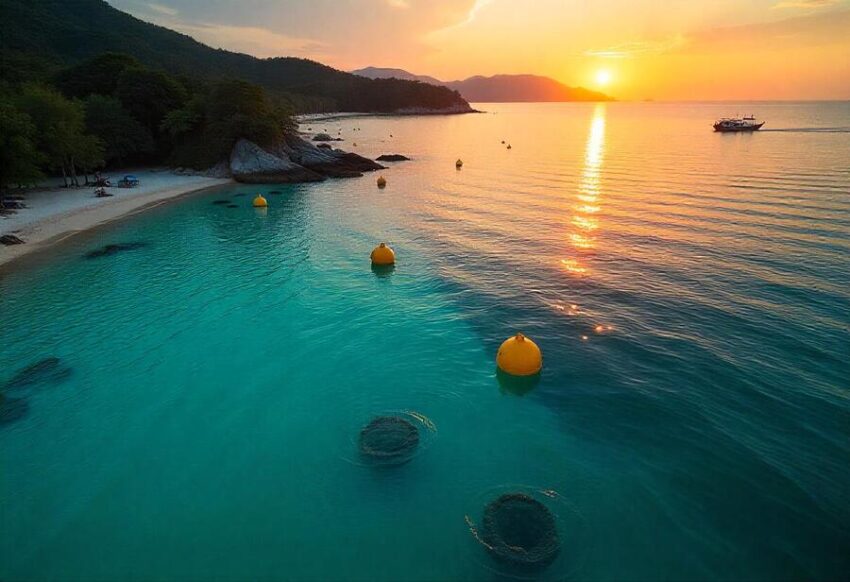Tuesday, May 20, 2025

Sabah’s authorities have intensified their stance on marine conservation, issuing a stern warning to tourists regarding the collection and handling of starfish in local waters. This move comes as part of the government’s ongoing commitment to safeguard the region’s delicate marine ecosystems and promote sustainable ecotourism practices.
The warning follows a viral video on social media showing a tourist removing starfish from the waters off Kota Kinabalu while paddleboarding. The footage quickly sparked concern among environmentalists and officials, prompting the government to take action. This incident has underscored the importance of protecting marine life, as starfish are essential components of the region’s biodiversity.
The video depicted the removal of 30 starfish, identified as the Horned Sea Star (Protoreaster nodosus), also known as the Chocolate Chip Sea Star. These species play a crucial role in maintaining the balance of the marine ecosystem. As natural predators, starfish help regulate the populations of various marine organisms, contributing to the overall health of coral reefs and other underwater habitats. The removal of starfish can disrupt this delicate balance, leading to unintended consequences that could harm the local environment.
Authorities have made it clear that such actions will not be tolerated and have pledged to take strong measures against anyone found violating regulations intended to protect the area’s wildlife and natural resources. The investigation into the incident confirmed that it took place in Tanjung Aru, a popular tourist area in Sabah, where the individual involved was associated with a local tour company.
The government has urged all tour operators to strictly adhere to established guidelines aimed at preserving the integrity of marine life. These regulations, which include prohibitions on the handling or removal of marine species like starfish and sea turtles, are designed to ensure the protection of Sabah’s unique underwater ecosystems. Officials have emphasized that respecting these rules is essential not only for the health of the marine environment but also for the long-term sustainability of Sabah’s tourism industry.
Despite the ongoing efforts to raise awareness through public campaigns, incidents involving tourists handling marine creatures remain a recurring issue. Over the years, various initiatives have been launched to educate visitors on the importance of respecting marine habitats, yet cases of such disturbances continue to surface. These actions highlight the need for stronger enforcement and a more widespread understanding of the environmental impact caused by human interaction with marine life.
To address this challenge, the Sabah government has reiterated its commitment to environmental conservation and vowed to work closely with relevant agencies to prevent further incidents. Authorities are also calling for greater cooperation from both local communities and the tourism industry to promote responsible practices among tourists. By fostering a deeper understanding of the need to protect marine ecosystems, the government hopes to ensure that future generations will be able to enjoy Sabah’s pristine natural beauty.
As ecotourism continues to grow in popularity, it is increasingly important that tourists and tour operators alike recognize their role in preserving the delicate ecosystems that make Sabah a unique and sought-after destination. The government’s efforts to protect marine life reflect the region’s broader commitment to sustainable tourism, which aims to balance environmental conservation with economic growth.
Tourists visiting Sabah are encouraged to be mindful of their actions and to avoid disturbing the natural habitats they encounter. By following established guidelines, respecting wildlife, and supporting eco-friendly practices, visitors can help ensure that Sabah remains a top destination for sustainable tourism. The protection of marine life is not just a matter of local importance—it is a shared responsibility that requires global awareness and collective action.
In the coming months, authorities will continue to monitor and assess the situation, ensuring that Sabah’s marine ecosystems remain safeguarded against further threats. With continued education, stricter enforcement, and greater public cooperation, Sabah aims to uphold its reputation as a haven for both nature lovers and responsible tourists alike.






